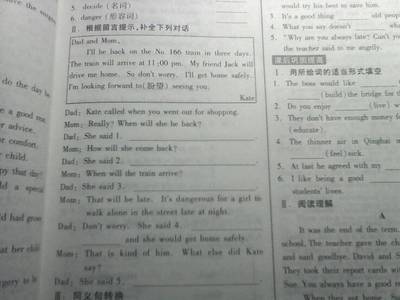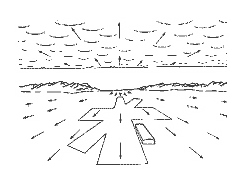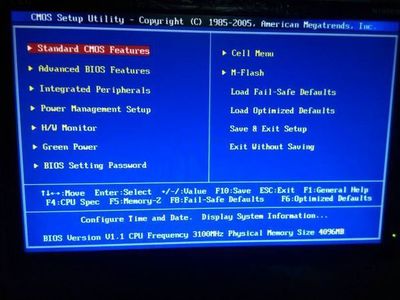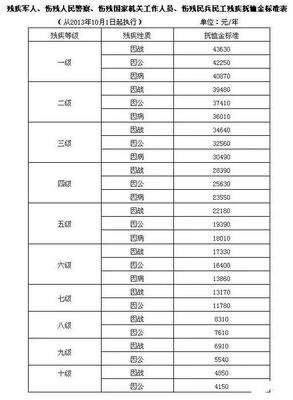1. 直接引语:别人直接说的话,一般直接放在引号内。如:
(1) My mother told me, “You should finish your homework first, thenyou can play with your friends.”
(2) Our teacher said, “Class is over, we should have a rest.”
2. 间接引语:用自己的话加以转述,被转述的话不放在引号内。上面两个例句变成间接引语应该是:
(1) My mother told me that I should finish my homework first andthen I could go out and play with my friends.
(2) Our teacher said class was over and we should have arest.
二、直接引语与间接引语的变化
直接引语变成间接引语时,由于引述动词(said,told等)一般都是过去时形式,因此间接引语中的动词时态、人称代词、限定词、时间状语、地点状语等一般都要做相应的变化。有下面几种情况:
1. 现在时间推移到过去时间
所谓现在时间推移到过去时间指一般现在时变为一般过去时,现在进行时变成过去进行时,现在完成时变成过去完成时。例如:
She said, “I am hungry.” → She said (that) she was hungry.
Vince said, “I have found what’s wrong with the computer.” → Vincesaid he had found what was wrong with the computer.
在下列场合,尽管陈述动词为过去时形式,间接引语中的动词时态却不必改变,即:
(1) 当引述的是客观事实、科学真理、现在习惯工作以及格言等内容时:
He said, “The word ‘laser’ is an acronym(首字母缩略词).” → He said theword ‘laser’ is an acronym.
(2) 当动词所表示的状态或动作在引述时仍在继续时:
“I’m forty,” he said. → He said he is forty.
(3) 当谓语动词包含无过去时形式的情态助动词时:
He said, “It must be pretty late. I really must go.” → He said itmust be pretty late, and he really must go.
He said, “You mustn’t smoke in the room.”→ He said I mustn’t smokein the room.
2. 过去时间推移到过去的过去
这里需要注意以下几点:
(1) 当强调动作或状态先于引述动词时,一般过去时要变成过去完成体。例如:
He said, “I didn’t know you.” → He said he hadn’t known me.
当“过去的过去”已经不言自明,或者通过其他词汇手段予以体现,或者侧重于强调所转述的事实本身时,一般过去时形式可以不变。例如:
Ann said, “She was born in1981.” → Ann said she was born in 1981.
(2) 过去进行时可以变成过去完成进行时,也可以不变。例如:
Robert said, “I was joking with Mary.”
→ Robert said he had been joking with Mary.
Robert said he was joking with Mary.
(3) 过去完成时仍为过去完成时,不需改变。例如:
He said, “We hadn’t returned to the store when she came.”
→ He said they hadn’t returned to the store when she came.
(4) 时间状语分句中的一般过去式或者过去进行时可以不变。例如:
John said, “When I lived in London I often saw Jane.”
→ John said when he lived in London he had often seen Jane.
3. 将来时间推移到过去将来时间
最常见的是把表示将来时间的助动词由现在时形式变为过去时形式。例如:
He said, “We’re spending next weekend at home.”
→ He said they were spending the next weekend at home.
They said, “We’re going to Hawaii this summer vacation.”
→ They said they were going to Hawaii that summer vacation.
但是,在引述时,如果原话中的动作或者状态属于尚未到来的将来时间,那么,可以不推移到过去将来时间。例如:
He said, “I’ll be waiting for you tomorrow.” → He said he will bewaiting for me tomorrow.
4. 人称代词、限定词、时间状语、地点状语的变化
由上面的例子可以看出,当直接引语变成间接引语时,除动词时态变化外,人称代词、限定词、时间状语、地点状语等通常也作相应的变化。
(1) 人称代词,除引述本人原话外,通常第一、二人称变为第三人称,或者第二人称变为第一人称;限定词也作相应的变化。例如:
He said, “We love our country.” → He said they love theircounty.
(2)指示代词this,these分别变成that/it,those/they或them;指示限定词this,those通常变为that,those或the。例如:
“This house is very expensive,” she said. → She said that house wasvery expensive.
(3) 时间状语在间接引语中的变化有三种情况:
a. 时间状语和动词时态两者都变。例如:
He said, “It was completes ayear ago.” → He said it had been completed a year before.
b. 时间状语不变,动词时态可变可不变。例如:
She said, “We left Paris at 8 a.m.”
→ She said they had left Paris at 8 a.m.
She said they left Paris at 8 a.m.
c. 时间状语变与不变需视具体情况而定,如果引述时间和说话时间(如同一年、同一月、同一天等),时间状语可不变。例如:
Mr. Black said, “We started learning Chinese last month.”
→ Mr. Black said they hadstarted learning Chinese last month. (同一月引述)
→ Mr. Black said they hadstarted learning Chinese the previous month.(可在同一月引述,也可不在同一月引述)
直接引语间接引语
todaythat day
thismorning/afternoonthat morning/afternoon
yesterdaythe day before, the previous day
(the) day beforeyesterdaytwo days before
tomorrowthe next day, the following day
(the) day aftertomorrowtwo days after, in two days’ time
nextweek/monththe next week/month
lastweek/monththe week/month before
nowthen
(4)地点状语here通常变为there;但若说话人所在地也就是引述人所在地,可仍用here,也可用具体地点代替here。例如:
She said, “I first met your brother here.” → She said she first metmy brother there.
“Are the children here?” Father asked. → Father asked whether thechildren were here.
三、直接引语和间接引语正误例析
1. “Speak English more often in and out of class,” our Englishteacher said to us.
Our English teacher suggested us to speak English more often in andout of class. (误)
Our English teacher told /asked us to speak English more often inand out of class. (正)
Our English teacher suggested that we (should)speak English moreoften in and out of class. (正)
简析:直接引语是祈使句,变为间接引语时,要将祈使句的动词原形变为带to的不定式,并在不定式的前面根据语气需要使用ask, tell,order等动词,其句型是:ask/tell/order someone to dosth.,但是suggest不能接不定式作宾补,只能接-ing形式或从句(从句用虚拟语气)作宾语。
2. “Don’t play football on the street, little boys,” the policemansaid.
The policeman told the little boys did not play football on thestreet. (误)
The policeman told the little boys not to play football on thestreet. (正)
简析:如果直接引语是祈使句的否定式,变为间接引语时,要将其改为不定式的否定形式作宾补,不定式的否定形式是在不定式前面加not,而不是加donot, does not, did not等。
3. “Would you please do me the favor to carry the box upstairs?”the young woman said to me.
The young woman ordered me to carry the box upstairs for her.(误)
The young woman asked me to carry the box upstairs for her.(正)
简析:直接引语是一些表示请求、建议的疑问句,变为间接引语时,也变为不定式作宾语补足语。需要注意的是应根据原句的语气选用恰当的动词。因为此处原来的疑问句用的是很客气的语气,改写后不宜用order。
4. “You clean the classroom after class today, Tom,” said themonitor.
The monitor said that Tom cleaned the classroom after class thatday.(误)
The monitor told Tom to clean the classroom after class that day.(正)
简析:一般而言,祈使句是以动词原形开头的,但是如果说话人有意强调动作执行者,也可以在句首加上主语。我们在将其变为间接引语时不能将带有主语的祈使句与陈述句混淆起来。
5. “It’s a fine day. Let’s go to the country for a picnic,” Petersaid to me.
Peter told me that it was a fine day and let us go to the countryfor a picnic. (误)
Peter said that it was a fine day and asked me to go to thecountry for a picnic with him. (正)
简析:当直接引语中有多种句子形式如陈述句、祈使句、疑问句等时,我们就要用不同的方式将各种句子进行转述。因为原句中直接引语前面部分是陈述句,故变为由that引导的宾语从句,后面部分是祈使句所以变为不定式作宾补。
直接引语变间接引语的技巧
一、如何变人称;
下面有一句顺口溜“一随主。二随宾,第三人称不更新”。“一随主”是指在直接引语变间接引语时,如果从句中的主语是第一人称或被第一人称所修饰。从句中的人称要按照主句中主语的人称变化如:
She said. "My brother wants to go withme." →She said her brother wanted to go with her.
“二随宾”是指直接引语变间接引语时,若从句中的主语及宾语是第二人称。或被第二人你所修饰。从句中的人称要跟引号外的主句的宾语一致。如果引号外的主句没有宾语。也可以用第一人称,如:
He said to Kate. "How is your sisternow?" →He asked Kate how her sister was then。
“第三人称不更新”是指直接引语变间接引语时。如果从句中的主语及宾语是第三人称或被第三人称所修饰从句中的人称一般不需要变化如:
Mr. Smith said: "Jack is a goodworker。"→Mr. Smith said Jack was a good worker。
二、如何变时态:
直接引语在改为间接引语时、时态需要做相应的调整。
现在时它需改为过去时态;过去时态改为完成时;过去完成时则保留原来的时态。如:
1) She said. "I have lost a pen." →Shesaid she had lost a pen.
2) She said. "We hope so." →She saidthey hoped so.
3) She said. "He will go to see hisfriend。"→She said he would go to see his friend。
但要注意在以下几种情况下。在直接引语变为间接引语时,时态一般不变化。
①直接引语是客观真理。
"The earth moves around the sun and themoon moves around the earth, the teacher told me. → The teachertold me the earth moves around the sun and the moon moves aroundthe earth。
②直接引语是过去进行时,时态不变。如:
Jack said. “John, where were you goingwhen I met you in the street?” →Jack asked John where he was goingwhen he met him in the street。
③直接引语中有具体的过去某年、某月、某日作状语,变为间接引语时,时态不变。如:
Xiao Wang said. "I was born on April20, 1980。" →Xiao Wang said he was born on April 20, 1980。
④直接引语如果是一般现在时。表示一种反复出现或习惯性的动作,变间接引语,时态不变。如:
He said, "I get up at six everymorning。" →He said he gets up at six every morning。
⑤如果直接引语中的情态动词没有过去时的形式(例:ought to, hadbetter, used to)和已经是过去时的形式时,(例:could, should, would,might)不再变。如:
Peter said. "You had better come havetoday。" →Peter said I had better go there that day。
三、如何变状语:
直接引语变间接引语,状语变化有其内在规则,时间状语由“现在”改为“原来”(例:now变为then, yesterday变为 theday before)地点状语,尤其表示方向性的,或用指示代词修饰的状语,由“此”改为“彼”(例:this改为that),如:
He said, "These books are mine." →Hesaid those books were his.
四、如何变句型:
①直接引语如果是陈述句,间接引语应改为由that引导的宾语从句。如:Shesaid, "Our bus will arrive in five minutes." →She said that theirbus would arrive in five minutes.
②直接引语如果是反意疑问句,选择疑问句或一般疑问句,间接引语应改为由whether或if引导的宾语从句.如:He said, "Canyou swim, John?" →He asked John if he could swim.
"You have finished the homework,haven‘t you?" my mother asked. →My mother asked me whether I hadfinished the homework.
"Do you go to school by bus or bybike?" →He asked me if I went to school by bus or by bike.
③直接引语如果是特殊问句,间接引语应该改为由疑问代词或疑问副词引导的宾语从句(宾语从句必须用陈述句语序)。
She asked me, "When do they have theirdinner?"→ She asked me when they had their dinner.
④直接引语如果是祈使句,间接引语应改为"tell(ask, order,beg等) sb.(not) to do sth."句型。如:
"Don’t make any noise," she said to thechildren. →She told (ordered) the children not to make anynoise.
"Bring me a cup of tea, please," saidshe. →She asked him to bring her a cup of tea.
⑤直接引语如果是以“Let‘s”开头的祈使句,变为间接引语时,通常用“suggest +动句词(或从句)。”如:
He said, " Let’s go to the film." →Hesuggested going to the film.或He suggested that they should go tosee the film.
引述别人的话有两种方式:一是使用引号引出人家的原话,这叫做直接引语;一是用自己的话把人家的话转述出来,这叫做间接引语。例如:
John said, "I’m going to London with my father."
约翰说:"我要和父亲到伦敦去。"(引号内是直接引语)
John said that he was going to Londonwith his father.
约翰说,他要和他父亲去伦敦。(宾语从句是间接引语)
由直接引语变为间接引语,分以下情况:
1、直接引语是陈述句时
间接引语为that引导的宾语从句(口语中that可以省略),主句的引述动词主要有say ,tell, repeat, explain,think等。
He said, "You are younger than I.” Hesaid (that) I was younger than him.
2、直接引语是疑问句时
间接引语为陈述语序:主句的谓语动词say 改为ask,或改为wonder,do not know, want to know, be not sure, be puzzled等。
(1) 一般疑问句或反意疑问句变为if(whether)引导的宾语从句。
She said, "Do you often come here toread newspapers?"
→She asked me if (或whether)I often wentthere to read newspapers.
She asked me, "You have seen the film,haven’t you?"
→She asked me whether(或if )I had seenthe film.
(2) 选择疑问句变为whether….or 宾语从句。
I asked him, "Will you stay at home orgo to a film tonight?"
→I asked him whether he would stay athome or go to a film that night.
(3)特殊疑问句变为由原来的疑问词引导的宾语从句。
He asked, "Where do you live?" →Heasked me where I lived.
3、直接引语是祈使句时
间接引语为不定式,作ask , tell, beg, order, warn,advise等动词的宾语补足语(don’t 变为not ).
The teacher said to the boy, "Open thewindow." →The teacher told the boy to open the window.
His father said to him, “Don’t leavethe door open.” →His father told him not to leave the dooropen.
[注意]
(1) 有些表示建议、提议、劝告或要求的祈使句,可以用suggest,insist等动词 加以转述。例如:
He said, "Let’s go to the theatre."
→He suggested (our )going to thetheatre.或He suggested that we(should) go to the theatre.
(2) "Would you mind opening thewindow?" he asked.
→He asked me to open the window.
"Why don’t you take a walk aftersupper?" he asked .
→he advised me to take a walk aftersupper.
"Shall we listen to the music?" heasked.
→He suggested listening to themusic.
4、直接引语是感叹句时
间接引语为what 或how 引导,也可以用that 引导。
She said, "What a lovely day it is!"
→She said what a lovely day it was.或She said that it was a lovely day.
5、如果主句谓语动词为各种现在时或一般将来时,则间接引语中的动词仍保持直接引语原来时态。如果主句谓语动词为过去时,间接引语中的动词时态按下列变化:
(1) 一般现在时变为一般过去时
(2) 现在进行时变为过去进行时
(3) 一般将来时变为过去将来时
(4) 现在完成时变为过去完成时
(5) 一般过去时变为过去完成时
(6) 过去完成时不变,仍为过去完成时
[注意]
(1)如果直接引语是表示客观真理时,变为间接引语,一般现在时不改为一般过去时。如:
The teacher said "The earth goes roundthe sun."
→The teacher said that the earth goesround the sun.
(2)如果直接引语中有明确表示过时间的状语,变为间接引语时,一般过去时不改为过去完成时。如:
He said to me, "I was born in1973."
→He told me that he was born in1973.
(3)如果直接引语所述事实在当时和目前同样生效,变为间接宾语时,一般现在时不改为一般过去时。如:
He said, "I’m a boy, not a girl."
→He said that he is a boy ,not agirl.
(4)如果直接引语中的谓语动词表示一种反复出现或习惯动作,在变为间接引时,一般现在时不改为一般过去时。如:
The girl said, "I get up at six everymorning."
→The girl said that she gets up at sixevery morning.
(5)如果直接引语中含有since, when, while引导的表示过去时间的状语从句,在变为间接引语时,只改变主句中的谓语动词,从句的一般过去时则不变。如:
He said to me, "I have taught Englishsince he came here ."
→He told me that he had taught Englishsince he came here.
(6)如果直接引语中含有情态动词 must, need, hadbetter以及情态动词的过去式could, might, should,would,在变为间接引语时,这些情态动词没有时态的改变。例如:
The teacher said to me . "You must paymore attention to your pronunciation."
→The teacher told me that I must (haveto ) pay more attention to my pronunciation.
He said , "I could swim when I was onlysix ."
→He said that he could swim when he wasonly six.
6.代词等一般地应作用相应的变化。

指示代词 this ---that
these--- those
表示时间的词 now --- then
today--- that day
this week(month ,etc) ----that week(month ,etc)
yesterday ----the day before
last week(month) --- the week(month)before
three days(a year)ago---three days(ayear)before
tomorrow ----the next (following )day
next week(month)--thenext(following)week(month)
表地点的词 here --there
动词 bring -- take
come –go
直接引语变间接引语的用法及讲解
定义:直接引语:直接引用别人的原话,并在原话前后加引号。
例:He said:" It is too late."
间接引语:用自己的话转述别人的话,多数以宾语从句的形式构成。
例:He said it was too late.
直接引语与间接引语相互转化时应注意的问题
第一:人称的变化。
主语为第一人称的直接引语,变间接引语时,人称要做相应调整。
例如:
直接引语 She said:" I am hungry."
间接引语 She said she was hungry.
直接引语 Mum said to me:" You must cleanyour bedroom by yourself."
间接引语 Mum told me that I had to clean mybedroom by myself.
第二:时态变化
直接引语变间接引语时,间接引语的时态要与主句的时态一致。其规律如下图。
注意:
1.直接引语为客观真理时,间接引语时态不变,仍用一般现在时。
例如:Teacher told us:" The moon movesround the earth."
Teacher told us the moon moves roundthe earth.
2.直接引语为一般过去时并且与具体时间状语连用时,间接引语仍用一般过去时。
例如:She said:" I went to England in1998."
She said she went to England in1998.
3.主句为一般现在时或一般将来时的时候,间接引语时态不变。
He says:" I bought you a bookyesterday."
He says that he bought me a bookyesterday.
第三:指示代词、时间状语、地点状语和动词的变化。
第四:句式上的变化
1.陈述句变间接引语时,用that连接。
如:She said:" I am a girl."
She said that she was a girl.(that可以省略)
2.一般疑问句,选择疑问句和反意疑问句变间接引语时,要用陈述语气,并要加连词if或whether。
例如:She asked me:" Are you Mr. Li?"
She asked me if I was Mr. Li.
She asked us: "Do you want to go on apicnic?"
She asked us if we wanted to go on apicnic.
3.特殊疑问句变间接引语要用特殊疑问词引导。
例如:"How much have we spent on petrolthis year," Susan asked her husband.
Susan asked her husband how much theyhad spent on petrol that year.
4.祈使句变间接引语,一改二变三加四去。
一改:said (to) 改为asked或told, ordered等
二变:said to 的宾语或呼语变为asked等的宾语
三加:即在动词原形前加to,使成为动词不定式
四去:去掉please
例:He said to her:" Don't take the bookaway."
He asked her not take the bookaway.
5.感叹句变为间接引语
"What awful weather it is!" shesaid.
She complained about the awfulweather.
"What a bright girl you are." He saidto me.
He praised me that I was a brightgirl.
直接引语变间接引语练习题
一、练习题
I. 将下列句子变为间接引语
1. “You should be more careful next time,” his father said tohim.
2. Mr. Wang said, “I will leave for Shanghai on business nextmonth, children.”
3. “I haven’t heard from my parents these days,” said Mary.
4. The geography teacher said to us, “The moon moves around theearth and the earth goes round
the sun.”
5. She said to him, “It’s time that you left here.”
6. Zhang Hong said to me, “Doctor Wang passed away in 1948.”
7. John said to his parents, “I had learned 500 Chinese words bythe end of last term.”
8. The history teacher said to them, “The Chinese Communist Partywas founded on July 1st, 1921.”
9. He said, “Are you a student?”
10. “Have you anything interesting I can read, George?” shesaid.
11. “She’s here to ask for help, isn’t she?” he asked.
12. “Where are you going?” the father asked his son.
13. “Are you sorry for what you have done?” the mother asked thenaughty boy.
14. She said, “Did you meet this man at the station two hours ago,Mr. Li?”
15. “Write your names on your papers first,” the teacher said tous.
16. “Please come here again tomorrow,” her friend said toher.
17. “Let me pack the parcel for you,” he said.
18. “Don’t make so much noise in class, boys and girls,” said theteacher.
19. “What a lovely day it is!”
20. “Happy New Year to you!” he said.
II. 把下列句子变为直接引语
1. I told him that I had lost my money and that I would findit.
2. She asked whether I would be free the next day or not.
3. I asked her where she was going and what she was going to do thenext day.
4. His father told him not to climb that high tree in his newcoat.
5. The stranger asked me what my name was.
6. She said that she would finish her work the next day.
7. The teacher asked if we could do it.
8. The commander ordered his men not to cross the river beforedawn.
9. My teacher asked whether he was coming.
10. The scientist asked me what I was doing.
参考答案:
I. 将下列句子变为间接引语
1. His father told him that he should be more careful the nexttime.
2. Mr. Wang told the children that he would leave for Shanghai onbusiness the next month.
3. Mary said that she hadn’t heard from her parents thosedays.
4. The geography teacher told us that the moon moves around theearth and the earth goes round
the sun.
5. She told him that it was time that he left there.
6. Zhang Hong told me that Doctor Wang passed away in 1948.
7. John told his parents that he had learned 500 Chinese words bythe end of last term.
8. The history teacher told them that the Chinese Communist Partywas founded on July 1st, 1921.
9. He asked whether I was a student.
10. She asked George if he had anything interesting she couldread.
11. He asked whether she was there to ask for help or not.
12. The father asked his son where he was going.
13. The mother asked the naughty boy if he was sorry for what hehad done.
14. She asked Mr. Li whether he had met that man at the station twohours before.
15. The teacher told us to write our names on our papersfirst.
16. Her friend asked her to go there again the next/ followingday.
7. He offered to pack the parcel for me.
18. The teacher told the boys and girls not to make so much noisein class.
19. He/ She exclaimed that it was really a lovely day.
20. He wished me a Happy New Year.
I. 把下列句子变为直接引语
1. I said to him, “I have lost my money. I will find it.”
2. She asked, “You will be free tomorrow, won’t you?”
3. I asked her, “Where are you going and what are you going to dotomorrow?”
4. His father said, “Don’t climb this high tree in your newcoat.”
5. The stranger asked, “What’s your name?”
6. “I’ll finish my work tomorrow,” she said.
7. The teacher asked, “Can you do it?”
8. The commander ordered his men, “Don’t cross the river beforedawn.”
9. My teacher asked, “Is he coming?”
10. The scientist asked me, “What are youdoing?”
直接引语变间接引语练习题
二将所给直接引语变为间接引语,每空一词:
1. “I never eat meat.” he said.
He said that ______ never ______ meat.
2. “I’ve found my wallet.” he said to me.
He ______ me that he ______ ______ ______ wallet.
3. “I took it home with me.” she said.
She said that ______ ______ _______ it home with her.
4. The teacher said, “The sun rises in the east and goes down inthe west.”
The teacher said that the sun ______ in the east and ______ down inthe west.
5. “I met her yesterday.” he said to me.
He ______ me that he ______ met the day ______.
6. “You must come here before five.” he said.
He said that I ______ to go ______ before five.
7. “I bought the house 10 years ago.” he said.
He said that he _______ bought the house 10 years _______.
8. “Did you see her last week?” he said.
He ______ ______ I had seen her the week _______.
9. He said, “You can sit here, Jim.”
He ______ Jim that he ______ sit there
10. He asked, “How did you find it, mother?”
He asked her mother ______ ______ ______ found it.
11. “Where have you been these days?” he asked.
He asked me _______ _______ _______been _______ days.
12. “Do you know where she lives?” he asked.
He asked ______ ______ knew where she ______.
13. “Stop making so much noise, children.” he said.
He ______ the children ______ ______ making so much noise.
14. “Don’t tell him the news.” she said.
She told me _______ ______ ______ him the news.
15. “Are you intested in this?” he said.
He ______ ______ I was interestd in ______.
【参考答案】
1. he, ate 2. told, had, found,his
3. she, had, taken 4. rise,goes
5. told, had, before 6. had,there
7. had, before 8. asked, if[whether], before
9. told, could 10. how, she,had
11. where, I, had, those 12. if[whether], I, lived
13. told, to, stop 14. not, to,tell
15. asked, if [whether], that
三请将下列直接引语改为间接引语。
1. “I'm glad to receiveyour e-mail,” said he.
________________________________________________
2. He said to me, “Areyou going home this weekend?”
________________________________________________
3. “How do you like thefood here?” said she.
________________________________________________
4. She said to me, “Don'tride in the street.”
________________________________________________
5. “Stand where you are!”the police said to the young man.
________________________________________________
II.请在下列空白处填上适当的词语,使句意不变。
1. She said, “Are youfrom the south?”
She asked ________ I________ from the south.
2. Mom said to me, “Don'ttell a lie.”
Mom ________ me ________________ tell a lie.
3. Susan said to me, “Wevisited the Red Star Farm last week.”
Susan told me that ________________ ________ the Red Star
Farm ________ ________________.
4. Mr Paul said to us,“Light travels faster than sound.”
Mr Paul ________ us that light________ faster than sound.
5. “Go and post theletters,” the manager said to him.
The manager ________ him________ ________ and post the letters.
参考答案: I. 1. He said thathe was glad to receive my e-mail. 2. He asked me if I was goinghome that weekend. 3. She asked how I liked the food there. 4. Shetold me not to ride in the street. 5. The police ordered the youngman to stand where he was.
II. 1. if / whether;was 2. told; not to 3. they had visited; the weekbefore 4. told; travels 5. told; togo
四直接引语变间接引语练习题
1.He said: “I’veleft my book in my room.”
2.She said: “Hewill be busy.”
3.She said toTom, “Can you help me?”
4.She asked, “Isthis book yours or his?”
5.The teacherasked, “how did you repair it?”
6.The teachersaid to the students, “Don’t waste your time.”
7.The mothersaid, “Tom, get up early, please.”
8.The teachersaid, “The earth goes round the sun.”
9.My fathersaid, “Practice makes perfect.”
10.The boy saidto us, “ I usually get up at six every day.”
11.He said, “Weare still students.’
12.He said tome, “I was born in 1978.”
13.The engineersaid, “I was at college in 1967.”
14.He said, “Ihave studied English since I was a boy.”
15.She said, “Iread the book while I was waiting for a bus.
16.Mr. Greensaid to them, “Joe told me all about his story when he asked for ajob.”
17.He said, “Weinsisted that she start immediately.
18.She said, “Hedemanded that the girl leave at once.”
19.I said tohim, “I have finished it.”
20.She said tous,“ I’ll come here tomorrow.”
21.“Where doesyour chemistry teacher live, Karen?” the young manasked.
22.“I havegained the first place in the mathematics competition,” the littleboy said happily.
23.“Lighttravels faster than sound,” the physics teacher said to the boysand girls.
24.“Will you goto the concert with me this evening?” Mary askedme.
25.“What did youdo here yesterday?” the old man asked mybrother.
Key;
1. He told methat he had left his book in his room.
2. She said thathe would be busy.
3. She asked Tomif /whether he could help her.
4. She asked mewhether that book was mine or his.
5. The teacherasked me how I had repaired it.
6. The teachertold the students not to waste their time.
7. The motherasked Tom to get up early.
8. The teachersaid that the earth goes round the sun.
9. My fathersaid practice makes perfect.
10. The boy toldus he usually gets up at six every day.
11. He said theyare still students.
12. He told methat he was born in 1978.
13. The engineersaid he was at college in 1967.
14. He said hehad studied English since he was a boy.
15. She said shehad read the book while she was waiting for abus.
16. Mr. Greentold them Joe had told him all about his story when he asked for ajob.
17. He said they(had) insisted that she start immediately.
18. She said hedemanded that the girl leave at once.
19. I told him Ihad finished it.
20. She told usshe would come here tomorrow
21. The youngman asked Karen where her chemistry teacherlived.
22. The littleboy said happily that he had gained the first place in themathematics competition.
23. The physicsteacher told the boys and girls that light travels faster thansound.
24. Mary askedme if / whether I would go to the concert with her thatevening.
25. The old manasked my brother what he had done there the daybefore.
 爱华网
爱华网


